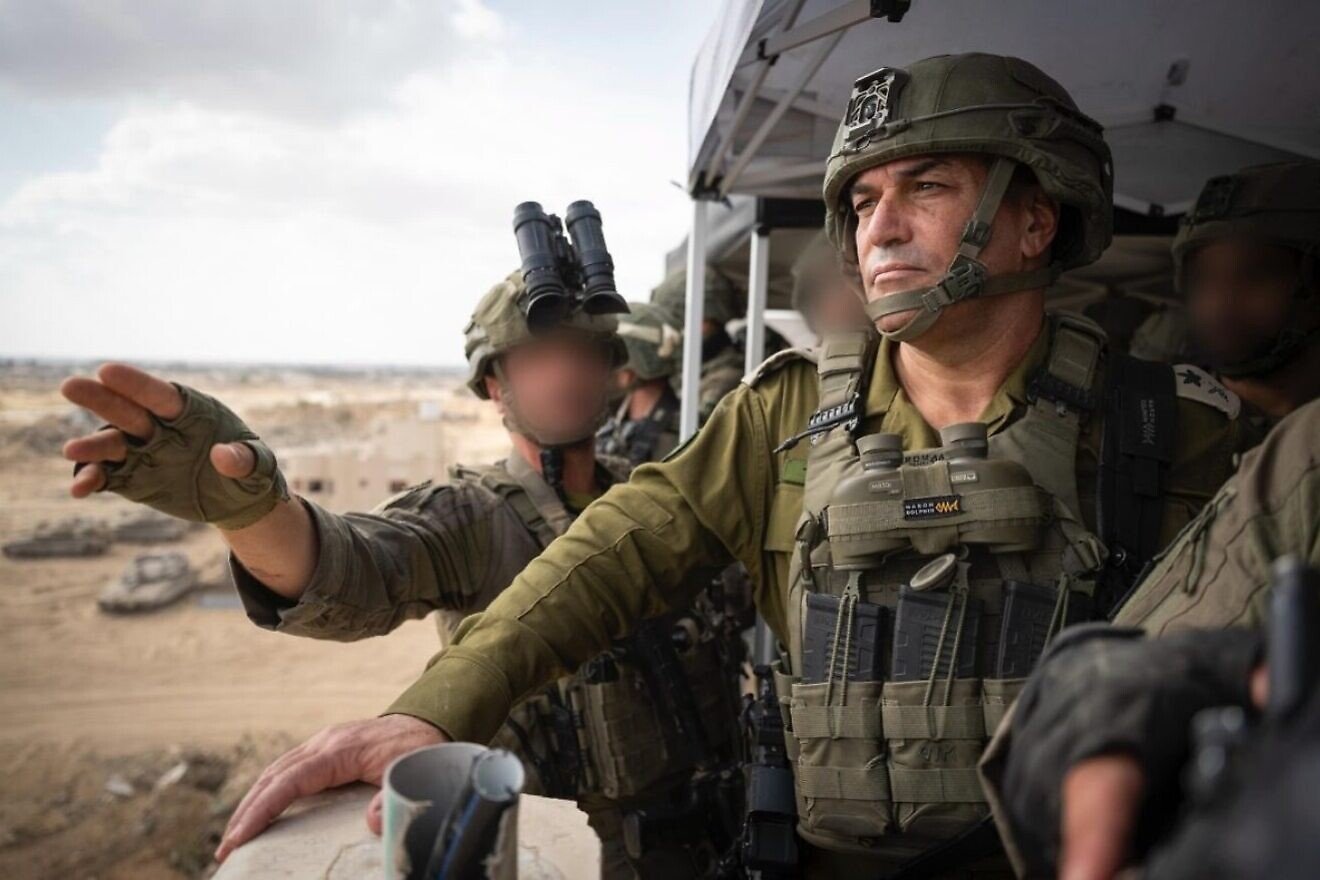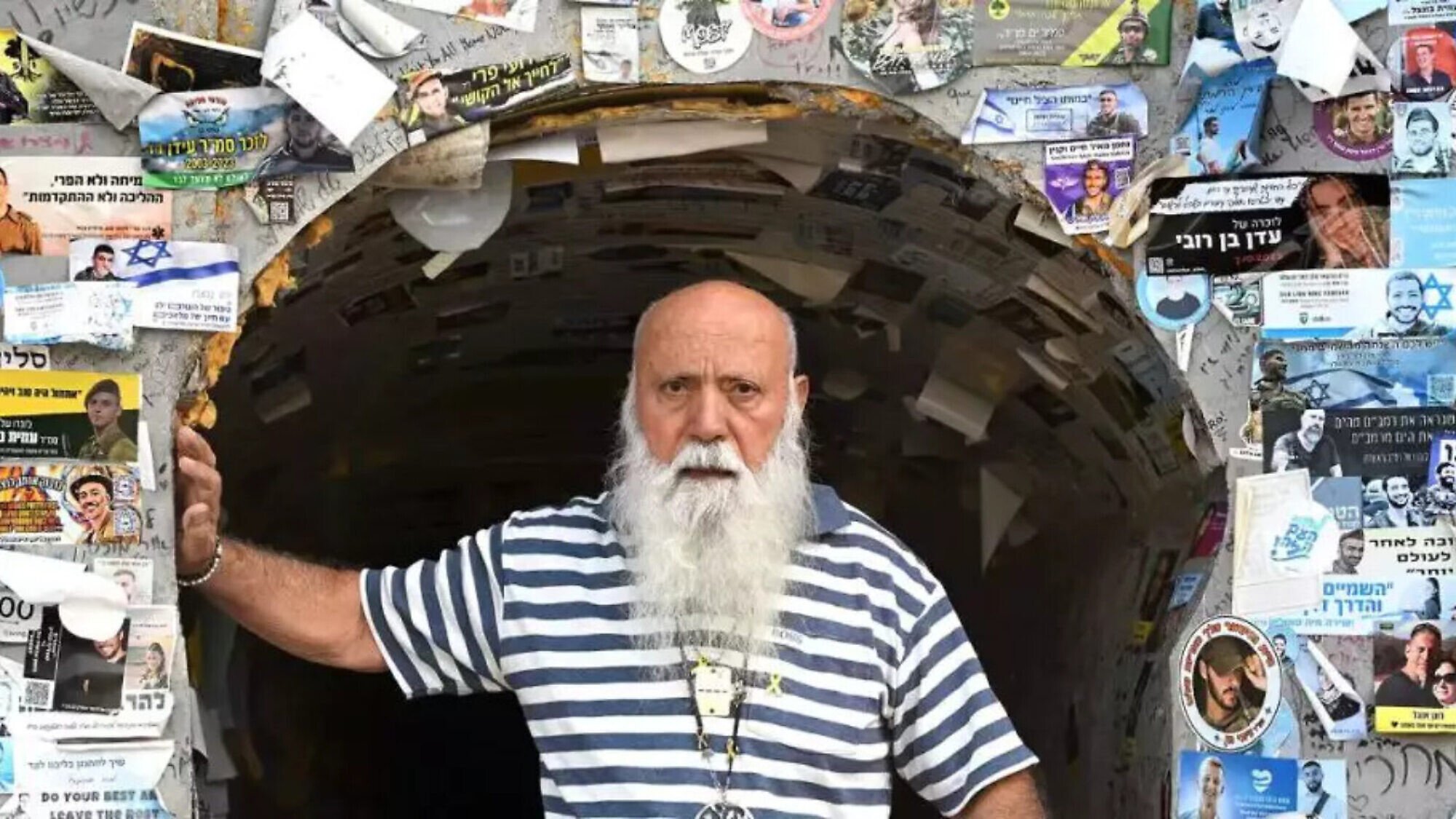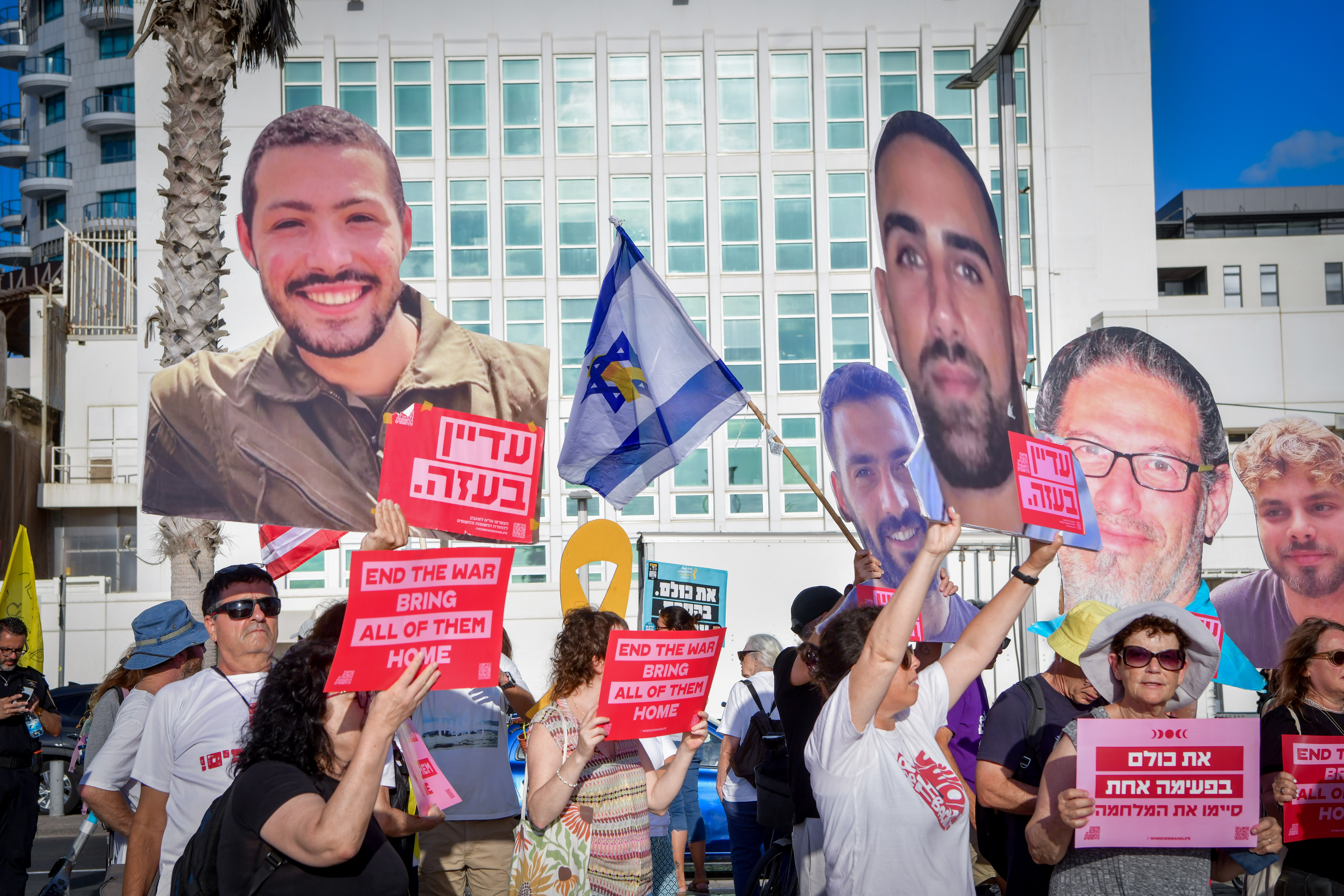(JNS) Following the Israeli Security Cabinet’s decision to prepare for a final, large-scale military takeover of Gaza City, the war against Hamas is entering its most decisive phase. The impending operation, which will reportedly involve an estimated 80,000 soldiers, is aimed at dismantling the last major stronghold of the terror organization, which continues to hold 20 living Israeli hostages and the bodies of 30 additional hostages.
Former senior Israeli defense officials have stated in recent days that this high-stakes offensive is a necessary and long-overdue step to achieve the war’s ultimate objectives. They argued that the success of the mission will hinge not just on military force, but on Israel’s ability to project determination and to strategically separate the civilian population from Hamas’s control, thereby forcing the terror group’s collapse as a regime and power broker in Gaza.
Shalom Arbel, a former senior member of the Israel Security Agency (Shin Bet) who served extensively in Gaza, told JNS that Hamas, guided by a long-term jihadist Islamist ideology bent on Israel’s destruction at all costs, operates like a ruthless real estate dealer, constantly making a cost-benefit analysis.
“Hamas operates on the basis of its satanic agenda, which is the doctrine of the Muslim Brotherhood,” said Arbel. This ideology views the Land of Israel as Islamic territory that “must be returned to Islam. Now that doesn’t mean that this must be within five years or twenty years. This is a long journey from their view, until ‘redemption.’ It’s an eternal journey.”
“Hamas, in my acquaintance with it, conducts a daily situation assessment and calculation of its steps, and looks for the steps that will most bring it closer to this goal,” Arbel said. “Its goal is to bleed Israel, exhaust its power socially and nationally and militarily, to cause it economic damage.”
However, if Hamas “sees that Israel is determined—even if it’s not fully realized, but that Israel is getting close [to seizing all of Gaza]—it will carry out what is called loss minimization and will raise a flag and say, ‘Stop, let’s negotiate.’ It will not want to lose everything,” Arbel assessed.
Hamas’s perception of Israeli determination is heavily influenced by external factors, the former intelligence officer stated.
“As long as international pressure on Israel is high, Hamas is encouraged and holds on stronger. As long as the internal Israeli scene is bubbling and boiling, of course, Hamas holds on stronger,” he stated. For nearly two years, Hamas has not believed Israel’s threats to go all the way, allowing it to prolong the conflict.
The key to victory, Arbel argued, is to target Hamas’s greatest strategic vulnerability: its reliance on the Gazan population as a human shield. “Israel did not smartly, in a certain sense, from the beginning of the war, address the issue of the Gazan population as a separate arena that so deeply affects the campaign,” he said.
By separating the population from the terrorists, Israel can remove Hamas’s main defense. Arbel raised the scenario that mediators are telling Hamas it should try to secure a release for Palestinian security prisoners and agree to the exile of its leaders in Gaza, and disarmament or face death and lose everything, and if they are told to disarm, Hamas
“Will they accept that? If leverages are applied. They respond only to power,” he stated.
That too is not an assured outcome, Arbel noted, due to jihadist martyrdom ideology that permeates Hamas. “Hamas is willing to murder Israeli children, and justifies this that they will grow up to be soldiers. It is willing to see its population killed and homeless, living in tents, scrambling for food. All is justified for the jihad,” he said, noting Hamas’s belief that the next generation of Palestinians can continue the war. “
Meanwhile, recent events in Gaza City show that friction between the local population and Hamas is growing. According to a report in Israel Hayom on Sunday, gunmen from the Jundiya clan raided the Al-Maamadani [also known as the Al-Ahli] Hospital in Gaza City, clashing with Hamas operatives from the Sahm (internal Hamas security unit) who were hiding there. When Hamas sent reinforcements, they were reportedly struck by an IDF aircraft. This incident highlights the internal dissent that a full-scale Israeli operation could leverage, potentially accelerating the collapse of Hamas’s control from within.
The IDF, for its part, said one of its aircraft struck an armed Hamas terrorist cell that operated adjacent to, and outside of, the Al-Maamadani Hospital compound in the area of Zaytun in the central Gaza Strip. “The terrorists were identified storing weapons and equipping themselves with weapons at the hospital compound and using it as a place of shelter.”
IDF Chief of Staff Lt. Gen. Eyal Zamir visited the Gaza Strip on Sunday to oversee the final preparations. In a statement to commanders, he declared, “Today we are approving the plan for the next phase of the war. Just as in the recent operations in Iran, Yemen, Lebanon, Judea and Samaria, and Gaza, we will continue to reshape the security reality. We will maintain the momentum of Operation “Gideon’s Chariots” while focusing on Gaza City. We will continue to strike until the decisive defeat of Hamas, with the hostages always at the forefront of our minds.”
He added, “Soon we will move on to the next phase of Operation ‘Gideon’s Chariots,’ in which we will continue to enhance the strikes against Hamas in Gaza City until its decisive defeat. Operation ‘Gideon’s Chariots’ has achieved its objectives; Hamas no longer possesses the same capabilities it had before the operation; we dealt a severe blow.”
Meanwhile, a Hamas delegation remained in Cairo, the capital of Egypt, for “intensive discussions” with Egyptian and Qatari mediators. A source familiar with the details told i24NEWS that Qatari Prime Minister Sheikh Mohammed bin Abdulrahman Al Thani was expected in Egypt to join the talks.
Brig.-Gen. (Ret.) Harel Knafo, a former commander of the IDF’s Command and Staff College and chief of staff at the Southern Command, told the Jerusalem Press Club on Sunday that a full seizure of the entire Gaza Strip should have been the plan from the beginning of the war.
“We said that there will be no other alternative than to occupy all the territories, control all the civilians, all over the Gaza Strip, because in no other way will Hamas send all the hostages for free,” Knafo stated. “And of course, it will not be willing to give up its weapons.”
Knafo explained that this step was delayed because Israel had to prioritize neutralizing threats from Hezbollah in Lebanon, altering the strategic reality in Syria, and dealing with the Iranian nuclear program.
Knafo assessed that Israel has already achieved approximately 80% of its war aims. “80% of the hostages are in Israel now,” he said, adding, “the other objective, we also gained 80% of it to dismantle Hamas … They don’t have any strategic weapons against Israel. They can do almost nothing to the civilians who live around the Gaza Strip.”
However, he argued that to achieve the final 20%, a full-scale ground operation is now unavoidable. He acknowledged the grave risks this poses to the remaining hostages but contended that delaying the operation is also a death sentence for them.
“You saw the picture of the hostages, you saw how they look, you saw how they are being starved and not having any kind of aid,” he said. “I think they will die before we finish if we choose the other plan [a siege]. I don’t know if we have enough time to have all the hostages back.”
Regarding the civilian population of Gaza City, Knafo stated that they would be given extensive warnings to evacuate ahead of the offensive. “At the end of the day, we will have to penetrate inside Gaza City, and I think that everyone who stays there will be considered a militant. Otherwise, he would have gone. He knows the threats, he knows that we are coming in with large forces,” Knafo said.
Want more news from Israel?
Click Here to sign up for our FREE daily email updates















Because of Hamas’s satanic agenda, at the end of this War, if Israel does not annex land, Hamas will see it as a victory !